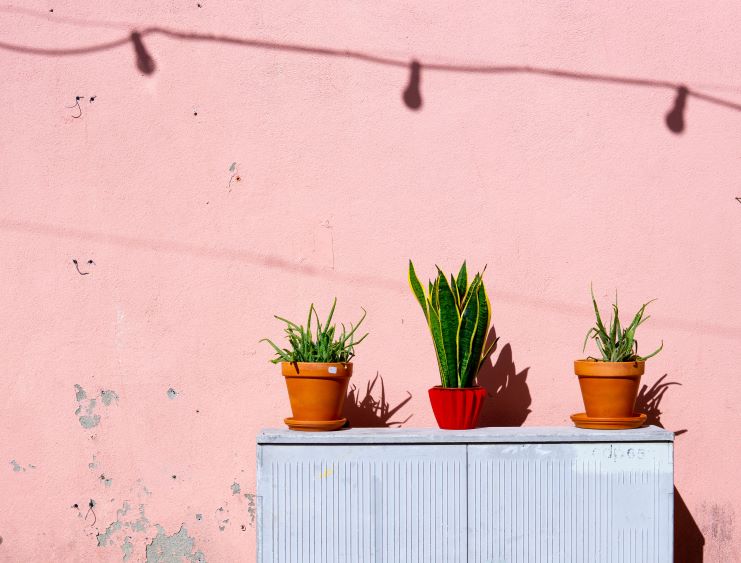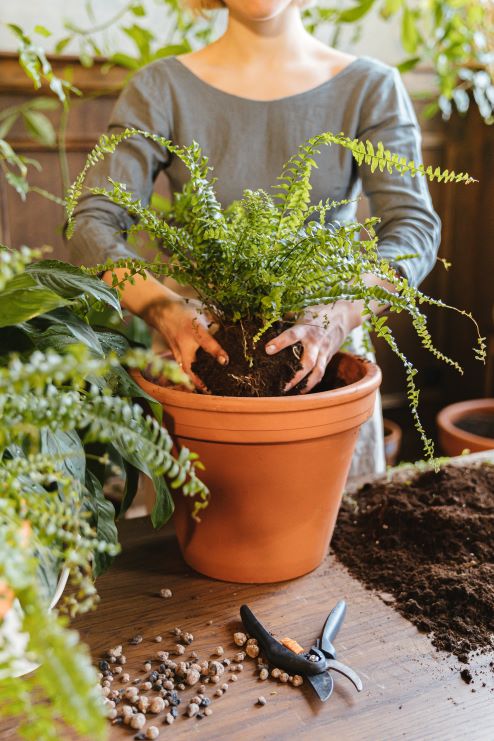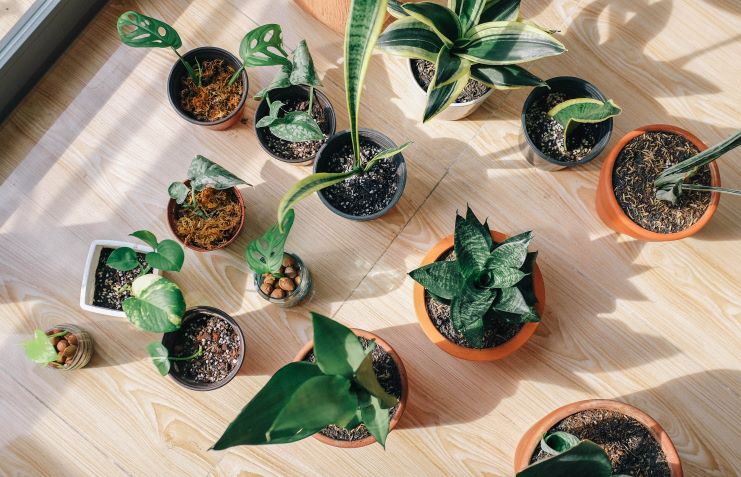The environment around you, especially if you’re working from home, can have an impact on your health and wellbeing. During uncertain times, people can feel unhealthy and out of control. This is totally normal and we’ve all been there during COVID.
That’s why it’s important to do what you can to improve the space around you. Indoor plants can be a cheap and easy solution to your problem. This is because indoor plants can help improve your stress levels, mood, breathing, air quality, and even sleep quality.
They can also be conveniently purchased from online plant marketplaces like UpPlant so you don’t even have to leave your home. I’ve personally filled my home with them over COVID and have noticed a positive change in my body and soul.
Keep reading to discover our top 5 indoor plants that we highly recommend.
Aloe vera

Aloe vera is one of the best indoor plants for health because it has multiple uses. People have been using aloe vera for centuries to soothe irritated skin and burns. You can apply it to your face to help get rid of acne naturally, consume it, when prepared right, to assist with stomach ailments, and even use it as toothpaste to reduce plaque buildup.
Caring for an aloe vera plant is not only simple but it also gives you something to do during your downtime. Aloe vera plants require 6-8 hours/day of direct sunlight. Warmer seasons usually suit aloe vera plants, but they can be also grown during winters indoors.
I recommend letting the soil completely dry out 2 to 3 inches below the surface before watering. Aloe vera plant pots should have small holes in the bottom to allow proper drainage. Try and avoid overwatering your aloe vera as it can be sometimes temperamental.
English Ivy

English ivy is another great indoor plant you might want to consider for your health. It boasts antioxidant and anti-inflammatory properties and has been used as a herbal medicine for bronchitis, asthma, and chronic obstructive pulmonary disease (COPD).
English ivy is a natural purifier and can help reduce toxins in the air. It is used to treat infection, burns, joint pain, and nerve pain. It can also increase the humidity level of a small room due to higher transpiration rates. Be mindful to keep your English Ivy plant out of the reach of children and pets because it is poisonous.
English Ivy can grow pretty well under fluorescent light or indirect sunlight and as a result, it is an ideal houseplant for darker spaces. They enjoy a dry environment, so make sure to wait until the soil is dry to the touch on top before watering your ivy plant again. Furthermore, make sure it has good drainage because ivy doesn’t like standing water or damp soil.
Snake plant

The snake plant is a succulent that can grow from six inches to several feet tall. Snake plants are recognized for their capacity to filter harmful toxins from the air such as cancer-causing CO2, formaldehyde, benzene, xylene, and toluene. These plants are also effective against airborne allergies.
Snake plants are resilient and low-maintenance plants that can survive in dry environments. These plants can grow best in partial sunlight. Although snake plants can grow in both darker corners and brighter windows, the plant will get weak and the leaves will become floppy if it is entirely shaded.
Boston fern

Boston ferns are one of the best indoor plants for humidifying the air due to the abundance of rich green leaves it grows. If you stay in your house often and the air feels stale, put a Boston fern in the corner to restore moisture naturally. It’s also great at purifying! Boston ferns can help reduce formaldehyde, xylene, and other nasty pollutants from the air. The Boston Fern has also been reported to help people who suffer from dry skin and irritably dry nostrils/throat.
Boston ferns require frequent watering and evenly moist soil. Mist these plants regularly to keep them fresh and healthy. Your Boston fern should be kept in a cool location. It does not need direct sunlight. The morning sun is preferable over the afternoon sun, which might burn its leaves.
Peace lily

Peace lilies, often known as closet plants, are popular indoor plants for health. They can help reduce ammonia, carbon monoxide, benzene, xylene, trichloroethylene, and formaldehyde from contaminated air. Their glossy foliage and white blossoms provide a lovely touch to any home. They are also another plant that can increase humidity levels in dry environments.
Peace lilies can thrive in a range of light conditions, from medium to low. They will blossom and produce more flowers if you keep them in more light. Alternatively, you can keep them in low-light conditions to give your space a classy foliage look.
Broad and wide leaves of peace lilies tend to attract dust, you should wash or wipe down the leaves at least twice a year. This will also help it process sunlight better. Peace lilies require less water than most other indoor plants. Water them once a fortnight and only when the soil is dry.



